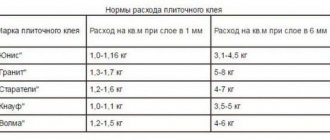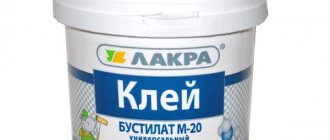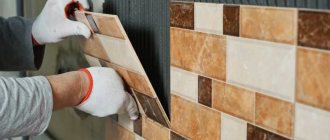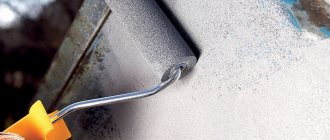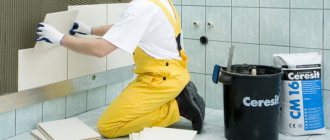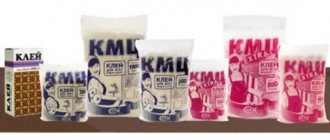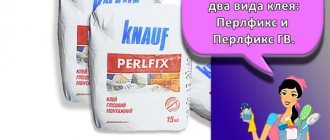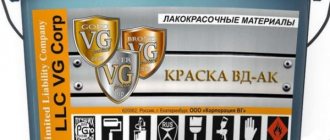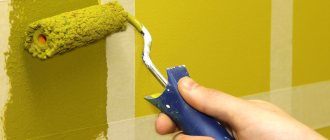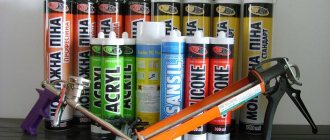Elastic adhesive for fastening all types of tiles for exterior and interior use.
The adhesive composition of Ceresit SM16, according to the European classification of tile adhesives, can be classified as class C1TE, which means that it is a cement adhesive with standard adhesion to the base (which is often sufficient for domestic needs, but for industrial or high-traffic areas is no longer enough );
thixotropic (that is, it contains special additives that prevent the tiles from sliding down under their own weight when laying them on vertical surfaces); with an extended open time (this is a rather important aspect, since any tile adhesive has a certain time, with conventional adhesives limited to 10-15 minutes, during which it is necessary to attach the tile to the combed adhesive composition. If this time is delayed, the surface of the adhesive on the wall will form film, and the level of adhesion decreases significantly) this composition has additives that increase the open time to 25 minutes. That is, you can calmly apply the composition to the wall, comb it with a notched trowel and, without much haste, lay out the tiles while observing the seam. Ceresit CM 16 adhesive has a higher price compared to other materials in this line precisely because it contains the above-described additives, which directly affect performance characteristics and durability.
The composition implies thin-layer application (no need to level the base with glue, use other mixtures for leveling, ask our technologists if anything is in doubt). When applied in a thick layer, adhesion rates will be significantly reduced.
Glue Ceresit SM 16. Characteristics:
- Packaging: 25 kg – paper bag;
- Shelf life: 12 months;
- Minimum consumption: 2.0 kg/m2;
- Average consumption: 3.6 kg/m2;
- Maximum consumption: 4.2 kg/m2.
Properties:
- elastic;
- has high adhesion;
- water- and frost-resistant;
- resistant to tile sliding;
- can be used on heated screeds;
- suitable for indoor and outdoor use;
- environmentally friendly.
Scope and variety of adhesives
Dry building mixtures "Ceresit" are produced by Henkel and are used for external and internal work, for walls and floors, and various types of foundations. The range of tile adhesives is huge; there are universal and specialized products on sale. All Ceresit compositions differ in their scope of application, and for ease of determination of their purpose they are marked as follows:
- SM – building mixtures for fixing ceramic tiles;
- SV – adhesives for fragmentary repair of lined surfaces;
- ST – mixtures for installing external (facade) thermal insulation.
The purpose of the funds is different, the user can always find the right solution. Standard SM brand adhesives have high adhesion to brick and concrete and are used for laying tiles, tiles, mosaics, porcelain tiles indoors and outdoors (example: Ceresit SM 110). Due to their moisture resistance, some adhesives can be used in the bathroom and other wet areas. Elastic adhesives will help secure the finishing material on surfaces prone to vibration and shrinkage. There are also special SM series adhesives for:
- large format floor tiles;
- mosaics and marble (white adhesives);
- clinker;
- facade tiles.
The ST line includes ready-made products and dry mixtures for dilution for outdoor use. The most popular compositions among builders are:
- CT 84 polyurethane adhesive for polystyrene foam (used when installing external thermal insulation of facades);
- CT 190 plaster-adhesive mixture (CT190 is used for installation of mineral wool boards and the base plaster layer for facade thermal insulation);
- CT 85 plaster mixture for polystyrene foam boards (for interior and exterior use).
The SV 10-100 series produces acrylic and other assembly adhesives in cylinders, which can be used indoors and outdoors. All of the above Ceresit adhesives can only be used to attach tiles and thermal insulation materials, and for laying other coatings you should select specialized compounds (for example, UK 400 for PVC and linoleum). Each adhesive has a certificate of conformity confirming its high quality.
Popular brands of Ceresit tile adhesive
Recommendations for choosing Ceresit tile adhesive
Ceresit CM 9
Ceresit CM 9 tile adhesive is considered the weakest of the entire German line. Despite its water resistance, it has reduced frost resistance, adhesion and solution lifespan. It takes about twice as long to harden as other products in the line.
Recommended for use when laying glazed tiles and terracotta no larger than 300x300 mm in size. The consumption of Ceresit adhesive for tiles in this case is about 2 kg/m2 with a comb tooth height of 4 mm and a tile product length of less than 100 mm.
Ceresit CM 11 Plus
One of the most popular. Used for laying tiles indoors and outdoors. Tile adhesive Ceresit SM 11 can be used for installation of porcelain tiles (in interior spaces). It has high frost resistance and moisture resistance.
By adding the SS 83 elasticizer to the CM 11 solution, you can obtain a composition that is suitable for laying tiles with any degree of water absorption, or when installing tile products on “warm floors”.
Ceresit CM 12
Specialized adhesive Ceresit SM 12 is designed for laying tiles and porcelain stoneware slabs up to 600x600 mm in size. It is used only for indoor work on non-deformable bases (up to -30°). With the help of the SS 83 elasticizer, it is possible to use CM 12 for installation on heated floors, unstable bases (recently hardened screed, plasterboard sheets, OSB, chipboard).
The presented mixture has a plastic, flowing consistency, which makes it easy to work with large-format tiles. The finished adhesive is applied exclusively to the mounting base.
Ceresit CM 14 Extra
Tile adhesive Ceresit SM 14 has high performance characteristics, which makes it suitable for laying porcelain stoneware and tiles up to 450x450 mm in size on floors and walls in interior spaces, regardless of the level of humidity in them and the presence of heating in the screed.
It is allowed to lay tiles using Ceresit CM 14 adhesive only on high-strength cement and concrete screeds. For street work, the use of CM 14 is allowed if cement decorative stone is intended to be installed on wall surfaces.
Ceresit CM 16 Flex
Ceresit CM 16 has a high level of elasticity, frost and water resistance, so it can be used for external and internal work, when laid on “warm floors” or deformable bases.
Ceresit CM 17
The main advantage of Ceresit CM 17 is its increased elasticity (compared to other products in the line) and high level of adhesion. Therefore, it is used for installing tiles on deformable substrates: chipboard, plasterboard sheets, “warm floors”. Can be used for cladding swimming pools, building facades and other structures used in outdoor conditions.
Ceresit CM 115
A specialized adhesive for laying marble tiles and glass mosaics, because it does not leave discolorations or stains on the finishing material after use. It can be used in various conditions (the main thing is that the base is concrete and non-deformable):
- plinths;
- facades;
- bathrooms, toilets, swimming pools;
- screeds with heated floors;
- balcony walls.
Tile adhesive for porcelain tiles
Made from a cement-sand mixture with the addition of organic and mineral plasticizers. Compared to other types, it has greater elasticity and holding capacity. You can work with slabs of different sizes without fear that they will slip or not be fixed.
Ceresit CM 14 Extra
The product marked “Extra” is frost-resistant, moisture-resistant, does not allow the tiles to slip, and is perfectly compatible with underfloor heating systems and waterproofing. The adhesive is suitable for exterior and interior use. Special fibers give the composition greater strength and elasticity, and the reinforcing mesh increases the impact resistance of the masonry. The scope of application of CM 14 is as follows:
- all types of ceramic tiles;
- slabs of artificial and natural stones;
- porcelain stoneware;
- cement-based materials.
The adhesive is intended for non-deforming bases made of cement and concrete; it can be used in the bathroom and other wet areas. How long does it take for the material to dry? The time before grouting the tiles is only 24 hours. Other characteristics of Ceresit SM 14:
- solution viability period – 2 hours;
- temperatures during work – +5…+30 degrees;
- adjustment time – 20 minutes;
- adhesion – 0.8 MPa;
- frost resistance – 100 cycles;
- operating temperatures - -30...+70 degrees.
Material consumption is 2.7-6 kg/sq.m. m, the first number is indicated for tiles less than 15 cm in size, the second - for more than 45 cm.
Ceresit CM 115
White tile adhesive Ceresit CM 115 is ideal for laying glass mosaics and marble tiles, as it does not leave stains or discolorations on this material. It can be used in almost any conditions, as long as there is a non-deforming concrete base: bathrooms, heated screeds, plinths and facades, balcony walls, etc.
The manufacturer does not recommend using mosaics on the mesh on the reverse side when lining swimming pools.
If additional elasticity is needed (for example, for laying on unstable substrates), the mixture must be diluted with the addition of elasticizer CC 83.
Specifications
| Mixing proportions | 6.75-7.5 liters of water per 25 kg bag. When using an elasticizer: 2 liters of CC 83, 5.5 liters of water per 25 kg. |
| Time to use the mixture after mixing | Minimum 2 (1*) hours |
| Conditions of use | Base and air temperature from +5 to +30, air humidity less than 80% |
| Opening hours | From 20 (15*) minutes |
| Tile adjustment time | From 25 minutes |
| Sliding tiles | No more than 0.5 mm |
| Grouting joints | After 24 (48*) hours |
| Adhesion to concrete after 28 days | More than 0.8 (1.1*) MPa |
| Frost resistance | At least 100 cycles |
| Operating temperature | From −50 to +70 |
| Package | Bags 5 and 25 kg |
| Flammability according to GOST 30244-94 | NG (non-flammable material) |
* When adding an elasticizer.
Ceresit CM 9
SM 9 glue is the weakest among all Ceresit cement-based options. It is moisture resistant, but has reduced frost resistance, adhesion and solution life, and hardens 2 times longer. It can be used to lay glazed tiles and terracotta up to 30x30 cm in size on a concrete base on floors and walls inside buildings. It can also be used for brickwork.
Specifications
| Mixing proportions | 5 liters of water per 25 kg bag. |
| Time to use the mixture after mixing | Minimum 2 hours |
| Conditions of use | Base and air temperature from +5 to +30, air humidity less than 80% |
| Opening hours | From 10 minutes |
| Tile adjustment time | From 15 minutes |
| Sliding tiles | No more than 0.5 mm |
| Grouting joints | In 48 hours |
| Adhesion to concrete after 28 days | More than 0.5 MPa |
| Frost resistance | At least 50 cycles |
| Operating temperature | Up to +50 |
| Package | 25 kg bag |
Consumption
| Tile length, cm | Comb tooth height, mm | Consumption, kg/m² |
| < 10 | 4 | 2 |
| < 15 | 6 | 2,7 |
| < 20 | 8 | 3,2 |
| < 30 | 10 | 4,2 |
Tile adhesive for heated floors
One of the main qualities that glue must have is strength along with elasticity, so that integrity is maintained during thermal changes.
Ceresit CM16 Flex
Ceresit SM 16 adhesive is also reinforced with Fiber Force microfibers, has increased elasticity, and can be used for all types of tiles. It is resistant to deformation, therefore suitable for substrates such as gypsum fiber, plasterboard, fiberboard, chipboard, OSB boards. The building mixture is combined with waterproofing materials, is waterproof, frost-resistant, and is suitable for balconies, terraces, and indoor pools. It can also be used for installing heated screeds and applied over old tile cladding.
Frost-resistant tile adhesive for exterior street work
If the task is to lay ceramic tiles outside the room, then it is better to use an option specially prepared for this purpose. It will contain all the necessary additives that will provide water-repellent properties and the ability to withstand low temperatures. Similar dry tile adhesives Ceresit CM include Ceresit CM 11, Ceresit CM 117.
Ceresit CM 11
A universal adhesive mixture designed for installation of tiles indoors and outdoors. Can also be used for laying porcelain tiles inside buildings. It is used with cladding that has a water absorption rate above 3%. In this case, the size of the largest tile should be no more than 40x40 cm.
Ceresit CM 117
A universal building material that can be used for laying ceramic tiles of all types on any durable, non-deformed surfaces of concrete, brick, or cement screed.
The material has good water-repellent properties, frost resistance and strength characteristics, ensuring resistance to various mechanical influences.
Methods for counting the amount of consumables
- You can determine the amount of glue using tables or a construction calculator - both are easy to find on the websites of large construction companies. This method can be used to determine the amount of other finishing materials - such as Ceresit facade paint or decorative plaster.
- The next option is that such, often free, services are provided by specialized trading enterprises where consumables are purchased. To do this, it is enough to provide the manager with all the necessary data.
With a minimum amount of time, you can perform an approximate calculation yourself. The average glue consumption is 1.3 kg, multiplied by the expected thickness of the adhesive layer. Let us remind you that for tiles with a format of 30x30 mm this figure is 4 mm. Approximate result = 5.2 kg/m². To obtain a more accurate value, it is enough to enter correction factors.
How to correctly calculate the amount of glue with a minimum residue?
Private developers in most cases choose Ceresit adhesive for tiles, the price of which is significantly lower than imported analogues, since this material has proven itself in tile installation work of varying complexity. Practice has shown that it is impossible to obtain an accurate result by multiplying the average glue consumption per m² and the area of the future cladding.
- It is necessary to take into account such factors as the type of glue, the microrelief of the base and the size of the tile. The range of adhesive fasteners is divided into dispersed, cement-polymer and epoxy compositions.
- The most economical glue is cement-polymer. Its consumption per m² of tile covering is about two kilograms. This indicator may vary depending on the thickness of the layer and the texture of the base surface.
Dry mixtures for preparing such a composition are packaged in 2, 5, 10 and 20 kg, so the material can be purchased in the required quantity. Ready-made dispersed and epoxy adhesives are sold in sealed packaging. Performance characteristics are maintained for one year, so when purchasing, you must check the date of manufacture.
First, the entire area to be coated is calculated exactly
Using a tape measure, measure the width and length of the floor or the height and width of the walls. The data obtained during measurements are multiplied by each other and the area in square meters is found.
Approximate consumption of Ceresit CM 16 adhesive depending on the size of the tile:
| Tile side length, mm | Spatula tooth size, mm | Consumption of adhesive adhesive for tiles Ceresit CM 16, kg/m2 |
| to 10 | 4 mm | approximately 2.0 |
| up to 15 | 6 mm | approximately 2.7 |
| up to 25 | 8 mm | approximately 3.6 |
| up to 30 | 10 mm | approximately 4.2 |
The consumption of tile adhesive depends on the quality of preparation of the base and the qualifications of the work performers and may be higher than the specified values.
With a combined application method, glue consumption increases.
- View the range of professional mixtures for concrete repair work and concrete waterproofing work here >>>
Determining surface unevenness
So, we know exactly the area to be tiled and we know the recommended adhesive thickness in mm for store-bought tiles. However, it is too early to calculate the glue. It is necessary to take a flat aluminum rule or a long level and walk over the entire surface of the pre-plastered walls or screed poured onto the floor. During this procedure, it is necessary to adequately assess the surface roughness. For example, a rule was set on the edge of the screed and in some places depressions are visible. It is the depth and number of these depressions that need to be assessed. Of course, no one will make such measurements with a micrometer in their hands. Unevenness is assessed by eye. For example, drops and depressions of approximately 2 mm in depth were identified across the entire floor area - this value will be considered “zero”. That is, when covering the screed, 2 mm of glue will be required to level the depressions + the minimum thickness of the glue, determined based on the size of the floor tiles. Only in this way will it be possible to determine the actual thickness of the future glue.
Ceresit CM 11 Plus
The most popular tile adhesive from Ceresit is CM 11. It is suitable for gluing outdoor and indoor tiles, as well as porcelain tiles (inside only). Not afraid of frost and moisture.
The tiles must have a water absorption higher than 3% (or porcelain tiles < 3%) and a size of up to 40x40 cm. As an adhesive for porcelain tiles, this mixture is suitable only for rooms with low loads.
If you add the CC 83 elasticizer to the mixture, Ceresit CM11 Plus tile adhesive can be used for tiles with any water absorption and can be laid on a warm floor.
Characteristics
Technical characteristics of Ceresit SM 11:
| Mixing proportions | 6 liters of water per 25 kg of dry mixture (approximately 1 to 4). If an elasticizer is added: 4 liters of CC 83, 2 liters of water, 25 kg of dry mixture. |
| Time to use the mixture after mixing | 1.5-2 hours |
| Conditions of use | Base and air temperature from +5 to +30, air humidity less than 80% |
| Opening hours | From 15-20 minutes |
| Tile adjustment time | 25-25 minutes |
| Sliding tiles | No more than 0.5 mm |
| Grouting joints | After 24 (72*) hours |
| Adhesion to concrete after 28 days | More than 0.8 (1.3*) MPa |
| Frost resistance | At least 100 cycles |
| Operating temperature | From −50 to +70 |
| Flammability according to GOST 30244-94 | NG (non-flammable material) |
| Package | Bags 5 and 25 kg |
* The asterisk indicates the characteristics when adding an elasticizer.
Consumption
The consumption of Ceresit SM 11 can vary greatly depending on the size of the tile, the size of the comb, the quality of the base and the experience of the master. Below are approximate values.
| Tile length, cm | Comb tooth height, mm | Consumption, kg/m² | |
| Ceresit CM 11 | Elasticizer CC 83 (if added) | ||
| < 5 | 3 | 1,7 | 0,27 |
| < 10 | 4 | 2 | 0,32 |
| < 15 | 6 | 2,7 | 0,43 |
| < 25 | 8 | 3,6 | 0,58 |
| < 30 | 10 | 4,2 | 0,67 |
Benefits of use
Ceresit tile adhesive has many positive characteristics. The main advantages include:
- resistance to constant exposure to moisture and high indoor humidity;
- frost resistance (relevant when using a specialized composition for outdoor use);
- high level of technology of the presented products (production is carried out on modern equipment using proven innovative German technologies, because the owner of the brand is Henkel);
- ensuring high stability of the applied composition (which is extremely important when laying tiles on vertical surfaces);
- complete environmental friendliness of the offered products, non-toxic, safe for people, pets, the environment, absence of harmful substances in the composition;
- non-flammability (in accordance with the requirements of GOST 30244-94;
- versatility of use (in the offered range of solutions, you can choose a suitable option without a pipe for simple laying of tiles in the bathroom or for outdoor work);
- ease of use, long period of adjustment of the position of laid products.
